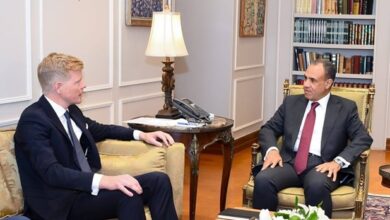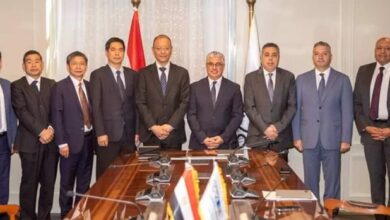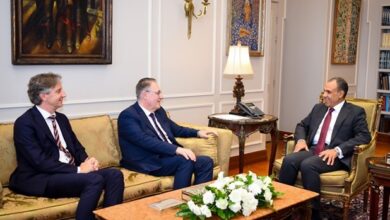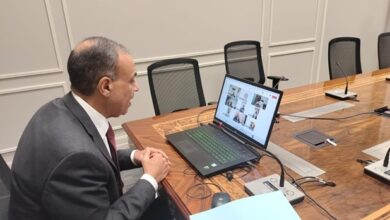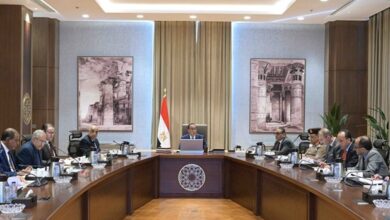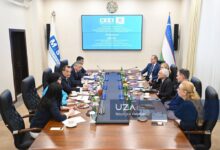President El-Sisi Receives Sultan of Oman, His Majesty Sultan Haitham bin Tareq Al Said
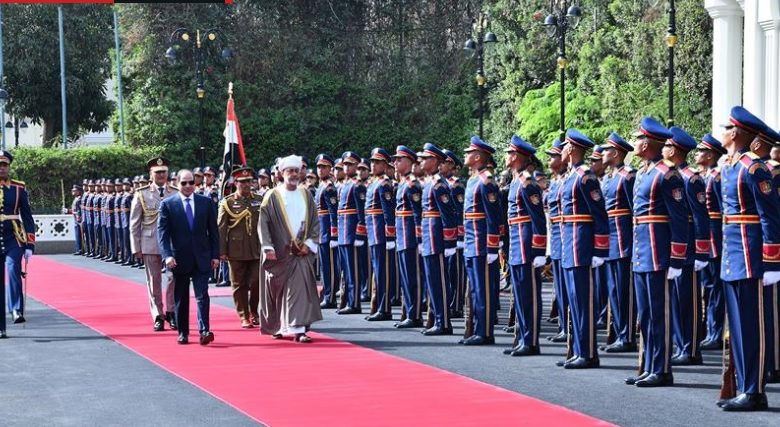
Yesterday, President Abdel Fattah El-Sisi received Sultan of Oman, His Majesty Sultan Haitham bin Tareq Al Said. An official reception ceremony was held, during which the national anthems were played and the guard of honor inspected.
Spokesman for the Presidency, Counselor Ahmed Fahmy, said that during their talks the President welcomed His Majesty Sultan Haitham bin Tareq as an honored guest of Egypt. President El-Sisi wished him success in continuing the comprehensive development trajectory and achieving vision “Oman 2040”. The President lauded the historical and friendly relations between Egypt and the Sultanate of Oman which have been formed over long decades of solidarity, consolidation and unity in the face of crises and challenges. President El-Sisi emphasized Egypt’s commitment to promoting these outstanding relations in a manner that achieves the interests of the two brotherly peoples and the entire Arab nation.
His Majesty Sultan Haitham bin Tareq lauded the special Egyptian-Omani relations as well as the brotherly bonds the two peoples have shared throughout history, stressing Oman’s keenness on strengthening the existing frameworks of cooperation between the two countries and on opening up broader prospects for bilateral cooperation in all areas in the coming period. This aims to build up on the positive outcomes achieved in this regard during President El-Sisi’s visit to Muscat in June 2022, and to continue consultations and coordination between the two countries on regional and international issues of mutual interest, particularly in light of the strategic and cultural depth that Egypt represents for the Arab nation and its status as a fundamental cornerstone for maintaining security and stability in the region.
The two leaders expressed relief at the ongoing progress in trade growth, while confirming joint interest to further enhance ongoing efforts in this regard among the relevant authorities in the two countries. They also discussed ways to exchange expertise and experiences to achieve institutional development and modernize the administrative authorities in the two countries as well as their working mechanisms in a manner characterized by sound management and digitization.
The two leaders exchanged views on regional and international issues within the framework of their ongoing consultations and coordination and their endeavors to realize regional stability and security, particularly in light of the huge threats facing the region and a number of Arab countries. There was an alignment in views with regard to the need to exert intensive efforts to settle existing crises in a way that safeguards the supreme interests of the Arab peoples and preserves their resources and gains.


